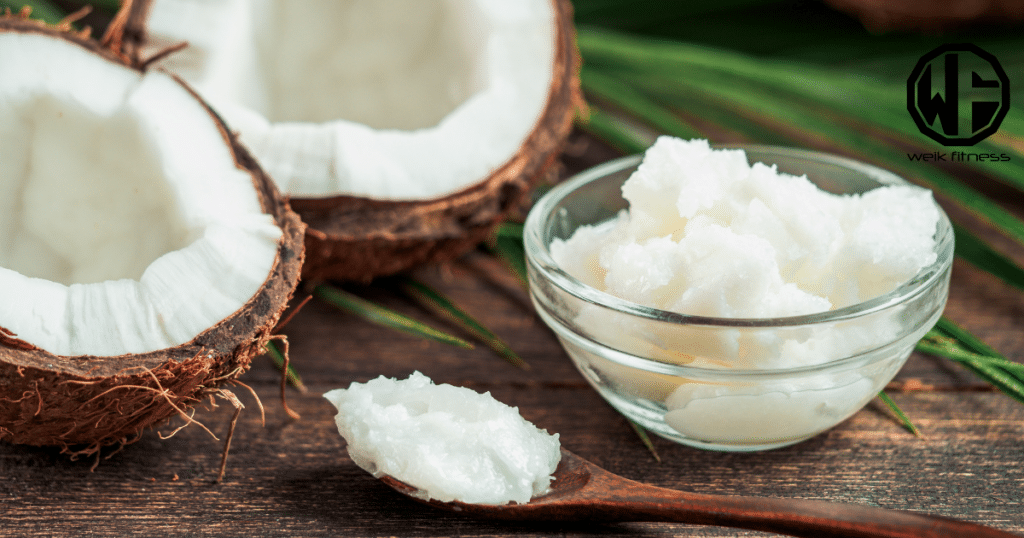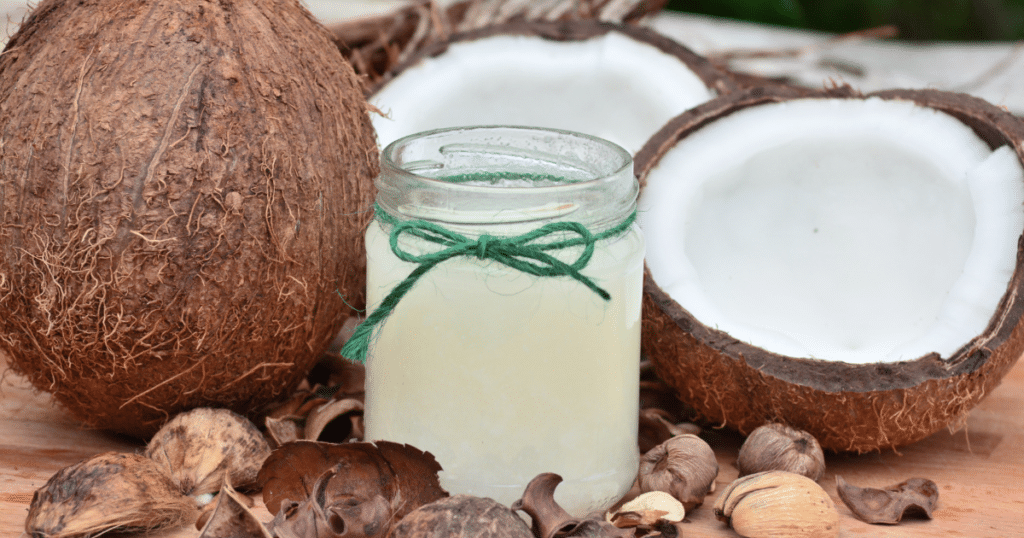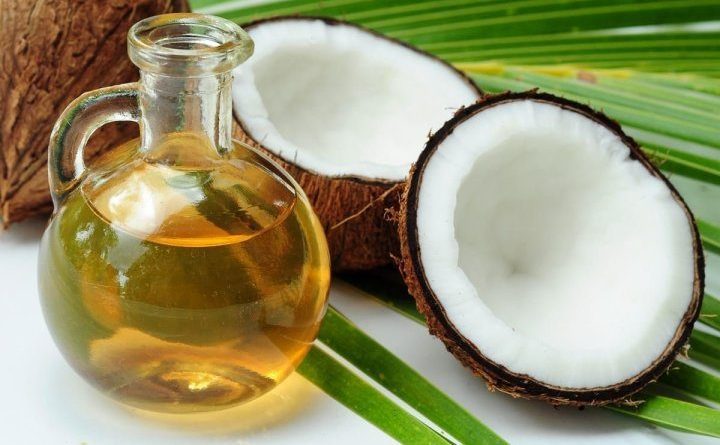Conflicting Benefits of Coconut Oil Use
As with many trends in health and wellness, many of them are debunked as time passes. Coconut oil looks to be just another one added to the list. New research is now showing that many of the health benefits that were associated with coconut oil use, to no longer be valid. So, what exactly does coconut oil do for you? Well, apparently not too much.
Disclaimer: This article is for informational purposes only and is not meant to treat or diagnose any condition. It is recommended that you speak with your doctor before starting any exercise program, changing your daily nutrition, or adding any supplements to your regimen.
Table of contents

What is Coconut Oil?
Coconut oil is a type of edible oil extracted from the meat of mature coconuts harvested from the coconut palm (Cocos nucifera). It has various uses, including culinary, cosmetic, and medicinal purposes. Here are some key details:
Composition
- Saturated Fat: Coconut oil is high in saturated fats, primarily lauric acid, which makes up about 50% of its fatty acid content. Other significant fatty acids include myristic, palmitic, and caprylic acids.
- Medium-Chain Triglycerides (MCTs): Coconut oil contains MCTs, which are easier to digest and can provide quick energy.
Types of Coconut Oil
- Virgin Coconut Oil (VCO): Extracted from fresh coconut meat without the use of high temperatures or chemicals. It retains more nutrients and has a mild coconut flavor.
- Refined Coconut Oil: Made from dried coconut meat (copra) and usually processed with heat and chemicals to remove impurities. It has a neutral flavor and higher smoke point.
- Fractionated Coconut Oil: A processed form where certain fatty acids are removed to keep the oil in a liquid state even at low temperatures. It’s commonly used in cosmetics and pharmaceuticals.
With over 100,000 solid review, this extra-virgin coconut oil is one of the most highly recommended out on the market today.
What WERE the Benefits of Coconut Oil Previously?

• Helps burn fat
• Helps with weight loss
• Helps improve cholesterol levels
• Helps you lose abdominal fat
• Helps prevent heart disease
• Helps prevent high blood pressure
• Helps with cancer prevention
• Helps boost the immune system
• Helps to improve type 2 diabetes
• Helps build muscle
Conflicting Coconut Oil Information
Coconut oil is made up of 92% saturated fat—the kind of fat the American Heart Association (AHA) and USDA recommends avoiding. Saturated fat can increase your LDL cholesterol levels (the bad cholesterol) which actually puts you at risk for heart disease. When asked why it has been deemed healthy and something people should consider supplementing with, a Harvard chairman of the department of nutrition said, “Got me. Some of its saturated fat is comprised of shorter molecules than saturated fat from dairy fat, and these do tend to raise HDL cholesterol more potently.”
Related Article: Coconut Oil SEO Injections?

Will Coconut Oil Help Me Lose Weight?
Some people are taking coconut oil to the extreme and consuming an abundant amount daily. Being that it is a fat, it still contains 9 calories per gram.
With over-consumption, one can add hundreds of calories to their diet on a daily basis. Multiply that over days, weeks, months, and you can find yourself packing on the pounds from this addition to your diet if you aren’t careful. People often think more is better and this isn’t necessarily the case. If you simply add it to you diet without making any other changes to your diet you are simply adding a caloric surplus to the nutritional plan or diet you are currently adhering to.
But the Sample Study Said It’s Beneficial?

Many have said that coconut oil while it is a saturated fat, acts differently in the body. However, multiple studies (21 to be exact) say this isn’t necessarily true.
Researchers mentioned that previous studies done with it were done in areas that don’t consume a Western-style diet. Those studied were primarily eating the coconut flesh or a coconut cream. They mentioned that this is very different than simply supplementing with or adding a coconut oil to your dietary intake.
No Heart Health Benefits Associated with Coconut Oil
A different study looked primarily at the heart health benefits of coconut oil. What it found was that while they claim it can help improve HDL cholesterol (the good cholesterol), increasing those levels had no impact on your risk against a heart attack or stroke. And surprisingly enough, when researchers took a closer look, they noticed those individuals who had a HDL level of over 70 mg/dl actually had a higher risk of pre-mature death from other causes when compared to those in the average range of 41-60 mg/dl.
One researcher even went as far as to say, “There’s really no direct evidence that coconut oil is a healthy fat.”
As you can see, over the years the research has gone back and forth. Don’t shoot the messenger here. I’m only bringing what current research is showing. If you feel coconut oil is improving your health, then by all means keep using it. If you read the article and don’t want to take it for health reasons any longer, at least you can still use it to promote healthy skin and hair.


*Disclosure: This article may contain affiliate links or ads, which means we earn a small commission at no extra cost to you if you make a purchase through these links. These commissions help support the operation and maintenance of our website, allowing us to continue producing free valuable content. Your support is genuinely appreciated, whether you choose to use our links or not. Thank you for being a part of our community and enjoying our content.
PLEASE CONSIDER SHARING THIS ON YOUR SOCIAL MEDIA TO HELP OTHERS LEARN MORE ABOUT THIS TOPIC.





